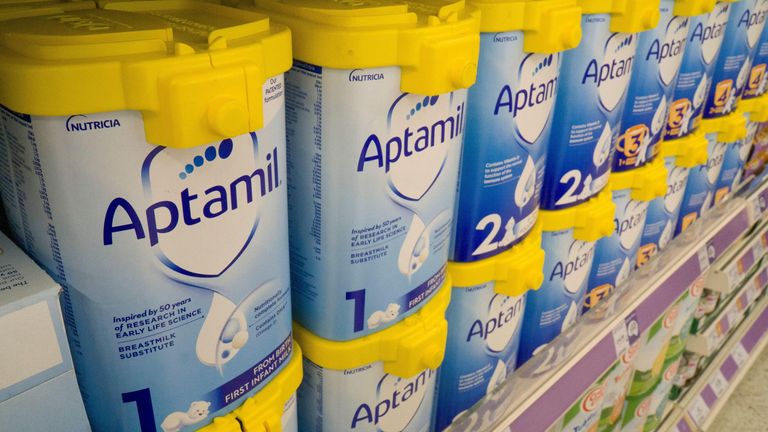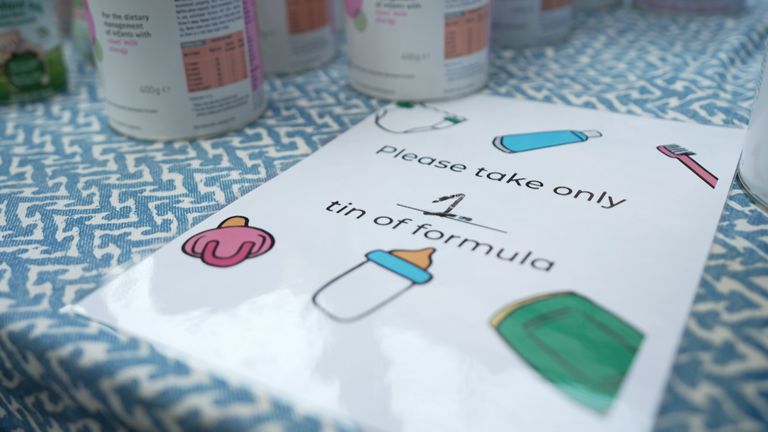The baby formula market is a “broken system” that needs urgent government intervention, according to a leading charity.
Feed UK welcomed the Competition and Markets Authority report that calls for change in the formula milk industry aimed at easing financial pressures on parents struggling to afford it.
Clare Murphy, co-director of charity Feed, said: “The rising costs of infant formula in recent years has hit those who can least afford it hardest.
“We know some mothers make sacrifices to purchase premium brands on the grounds they believe these are best for their babies, and guilt over not breastfeeding can play a key role in these purchasing decisions,” she said. “This has to end.”
Ultimately, she said, these proposals alone could not fix what amounted to a broken system.
“Despite this widespread need, infant formula remains stigmatised; healthcare professionals face restrictions on discussing it, and many women are left feeling like they have failed when they use it.
“We call on the government to act.”
Money blog: These UK places are most likely to win postcode lottery
Following a Sky News investigation that revealed the high prices of baby formula were driving British families to crisis while trying to keep up with the demands of feeding their babies, the CMA launched a review of the formula market.
Since then, the industry has started to bring prices down and new budget baby formula brands have launched.
Amid allegations that manufacturers are profiteering, one of the biggest industry players Danone, which owns Aptamil as well as Cow & Gate, brought the price it sells some formula to retailers down by 7% earlier this year.
Iceland boss Richard Walker told Sky News the high costs of baby formula amounted to “price gouging”. The supermarket chain cut the price of the SMA Little Steps brand, made by Nestle, to £7.49 per tub – other retailers also reduced prices.
Last week Kendamil, based in Cumbria, launched its own “low cost” brand of infant milk called Bonya which retails at £8.45.
For every 10 packs sold one will be donated to In Kind Direct, a UK charity supporting families struggling to afford the essentials.
Lidl has also introduced an own brand baby formula selling at £7.09 per 800g which makes it the joint cheapest on the market alongside Aldi’s Mamia milk.
These moves have saved families money, but the overarching problem remains because, according to the CMA, prices of 800g infant formula products rose by 18-36% across brands between December 2021 and December 2023.
A spokesperson for First Steps Nutrition, an infant feeding charity, said: “Infant formula remains an expensive and yet essential food item for many.
“Government action is needed to bring prices down more meaningfully across the board and in the long term, and to ensure accessibility for those families on low incomes that need it, while protecting and supporting breastfeeding.
“Both Aldi and Lidl serve as an example of the cost savings achievable through the availability of a supermarket’s own-brand infant formulas.”
Despite some progress, formula milk is still a staple item that charity Kidsbank in Chester delivers frequently to families who are struggling to afford to feed their babies.
Dee Denton, who runs the charity, urged politicians to examine the CMA findings and take meaningful action.
She said the situation continues to have a devastating effect on families they work with and the volunteers at Kidsbank.
Speaking to Sky News, she said it was “heartbreaking in all honesty”.
“I don’t think there is another word to describe it. The price of formula is incredibly high so it becomes an unattainable cost.
“I would urge them (politicians) to put themselves in the shoes of a family who is struggling to, not only to make ends meet, but feed their child.
“All we want is for our children to be happy and healthy and that is something they have in their power to help support.
“There is so much opportunity to change this.”


